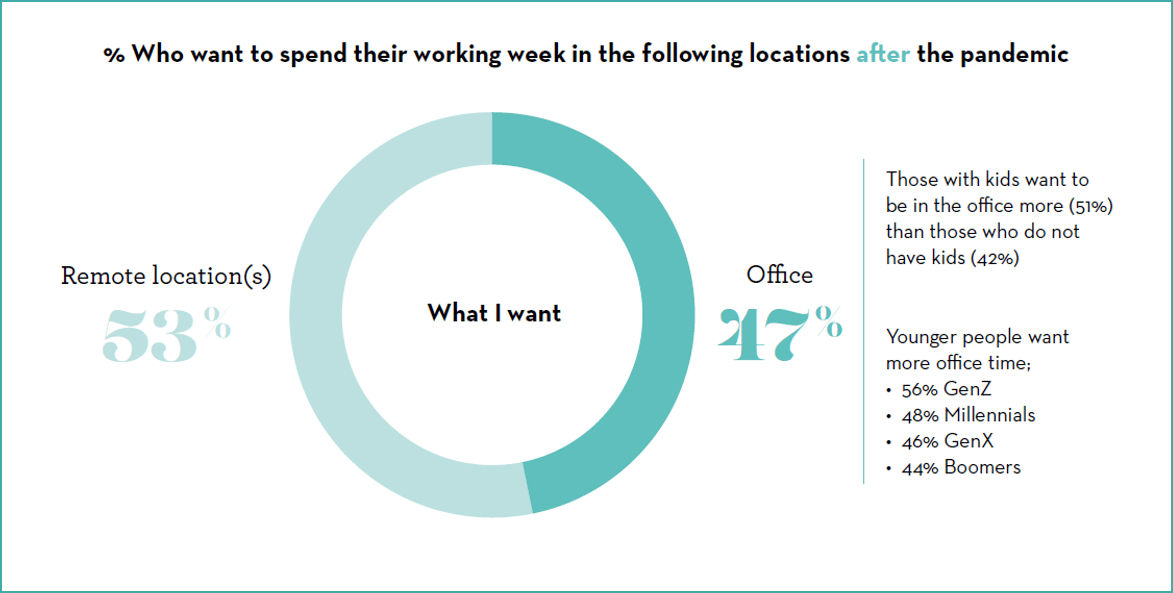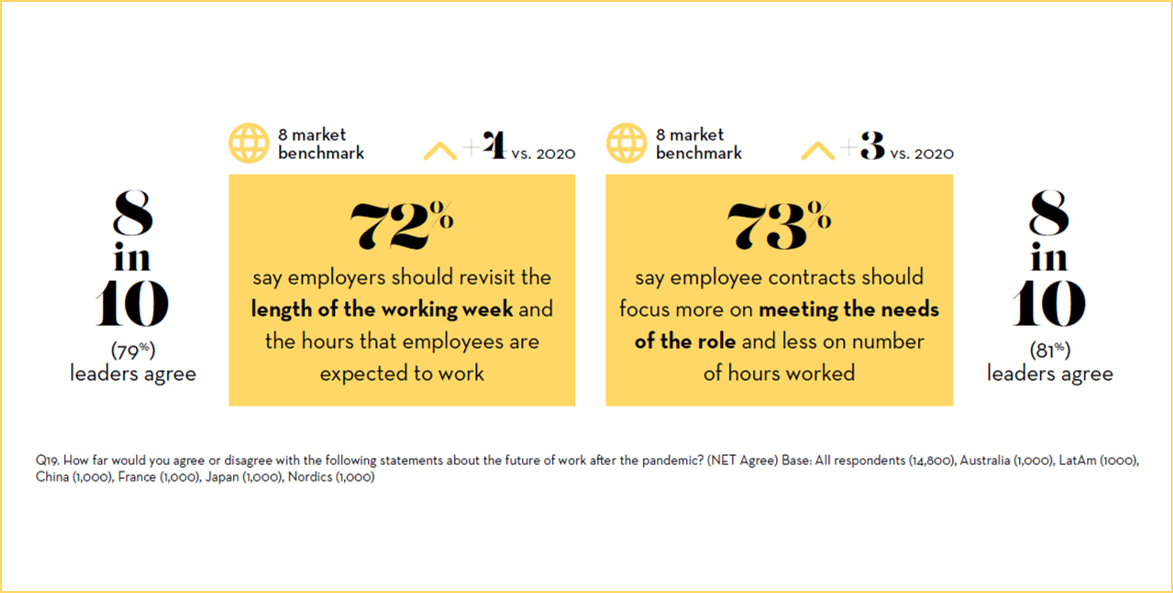Adecco’s 2020 Resetting Normal: Defining the New Era of Work report described trends that were accelerating due to the Covid-19 pandemic. In 2021, a more complete picture has emerged of the changes to the way we work and the key drivers of productivity, employee trust, engagement, health and wellbeing, and overall company success. Adecco’s recent strategic acquisitions and worldwide scope provide it with both the expertise to analyze and the capacity to affect solutions to the dynamic opportunities and challenges identified in the report.
Resetting Normal: Defining the New Era of Work 2021, examines how attitudes to work have changed over 12 months and highlights the key issues companies must manage to successfully adapt in this period of transition. This report covers 25 countries and 14,000 respondents across the globe – making it one of the world’s most comprehensive survey on the world of work to date.








